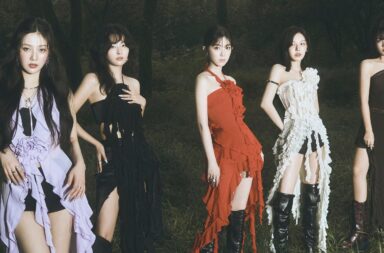Continuing from the first part of the mid-year discussion on mini-albums, Lo, Anna, and Aastha discuss the best K-pop albums in the first half of 2020.
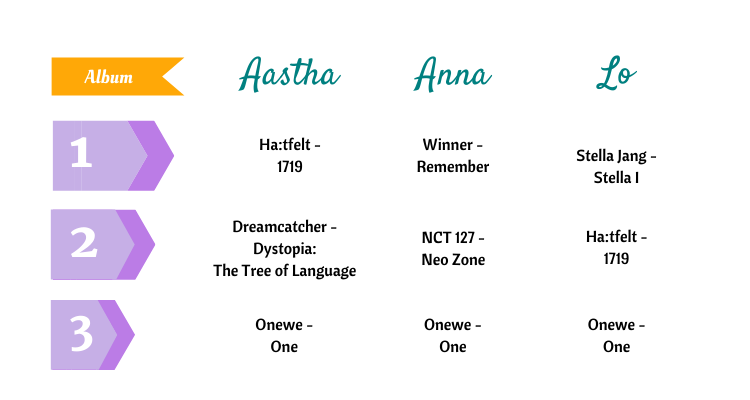
Lo: While the EPs this year really blew me away, I found the full albums to be lacking. There were a lot of decent albums, but not anywhere near as many great ones, or even good. Still, what we got is excellent, and unlike the EPs, we actually have an across the board consensus here! All three of us agree that Onewe’s One is the third-best album of 2020. Ladies, tell me your thoughts.
Anna: They certainly deserve that title! I’ve always liked bands, but 2020 is really a year for them to shine. While this talented band has gone through several re-debuts and name changes since 2015, they will definitely find success as Onewe, if One is any indication. Consisting of all their previous releases and four new songs, the album is a great representation of the band’s multifaceted musicality. Power ballad “Regulus” captured my heart, while the title track “End of Spring” (and its fantastic rock version!) had me dancing along the whole time. Each track has a distinctive charm, but they are all equally replayable, whether it is to appreciate that electric guitar solo in “If”, or the vocal acrobatics of the members in “Love me”.
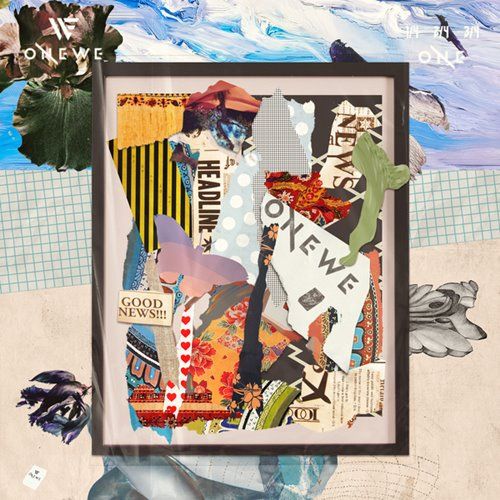
Compared to other K-bands in the scene, Onewe stands out because of its balance between instrumentation, musical experimentation, and vocals. While the various instruments do get their moments in the spotlight, the band is unafraid to play around with unconventional effects and sounds to switch up the feel of their tracks, allowing this album to become an extremely diverse one. Of course, the vocal abilities of the members are no joke, and they portray the mood/emotion of each song wonderfully.
What did the two of you think of this album?
Aastha: I think you make a really good observation, Anna! They do have a way with their musical experimentation without making it odd-sounding. I don’t know much about Onewe’s history, to be frank, but One has gotten me intrigued enough to look forward to their future releases. “If” was by far my favourite track off the album. The slow beats of percussion and the guitar instrumentation, coupled with the weighted emotions of the vocals made the song an absolute gem. But slow ballads aside, One shows the versatility that Onewe presents as a musical act. From the funky “0&4” to the refreshingly fun “Crazy good”, One is a sophisticated piece of production that would keep a listener hooked from start to finish.
Lo: I third both of your opinions about Onewe’s talent with genre roulette. They hit a diverse range of styles, all while keeping everything cohesive with their energy and vocal performances. That said, the thing that really impressed me and kept me returning to One is their charisma behind the microphone. “Q” with Hwasa is a great example, with their voices twining around each other in heartbreak and confusion. Even with the ballads, Onewe are such emotive performers that they will keep even the most avowed ballad-hater engaged. All across the album, Onewe are simply magnetic performers, so much so that it is hard to not focus on the music.
On the other hand, I found Winner’s Remember hard to listen to because it never seemed to hold my attention. Anna, what about it clinched your top slot?
Anna: As much as I love discovering new sides of groups through their albums, there are also times when I just want to sit back and enjoy something familiar, and Remember felt like a walk down memory lane. It’s not just because they included new versions of classics like “Color Ring”, but because their musical style is so distinct that their identity is evident in every track.
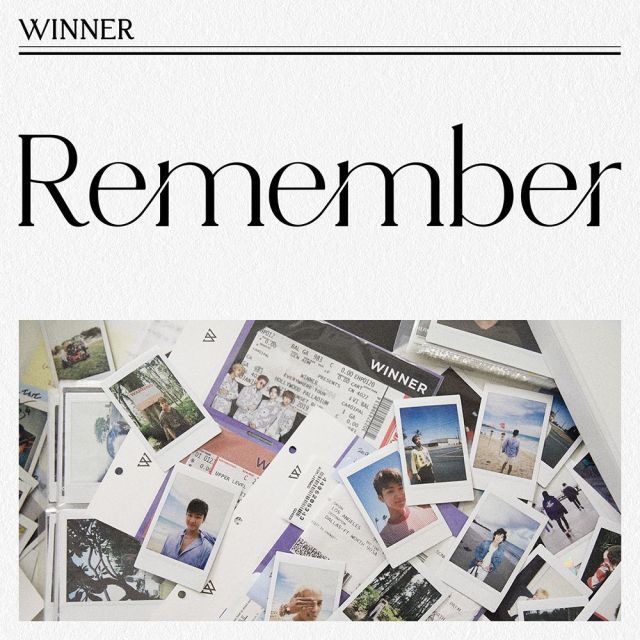
Whether the song is playful or emotional, there is a Winner-like laid-backness that makes this album a relaxing listen. The amazing vocal abilities of the members are already well-known, but this album reminded me of how well this group works together. Sentimental, powerful raps mixed with delicate and beautiful melodies is the perfect combination for a rainy day. The inclusion of solos by the enlisted members (Hoony and Jinu) is also a nice gift for Inner Circle who are missing them. In particular, the electronic instrumentation of “Serenade” by Hoony is really reminiscent of 2NE1’s iconic music, which I certainly have a soft spot for, since that got me into K-pop in the first place.
It is difficult to describe why I enjoy this album so much on a technical, musical level, but each track successfully tugs on my heartstrings, so it will always have a special place in my heart.
I’ve noticed that Ha:tfelt’s 1719 appears on both your lists! What did you ladies like about it?
Aastha: What I loved most about 1719 was how honest and raw it was. Musically, the album is packed with laid-back, mellow tunes, making it the perfect album to be playing on the days you just want to relax. Most of the tracks have a heavy R&B influence, and sometimes the instrumental of a song is no more than an acoustic guitar. There is serenity in the minimalism, though. 1719 is produced in a way that the sparse instrumentation and Ha:tfelt’s carefree vocals doesn’t bore the listener; rather, it exudes a calm vibe that makes you want to listen to the album on repeat.
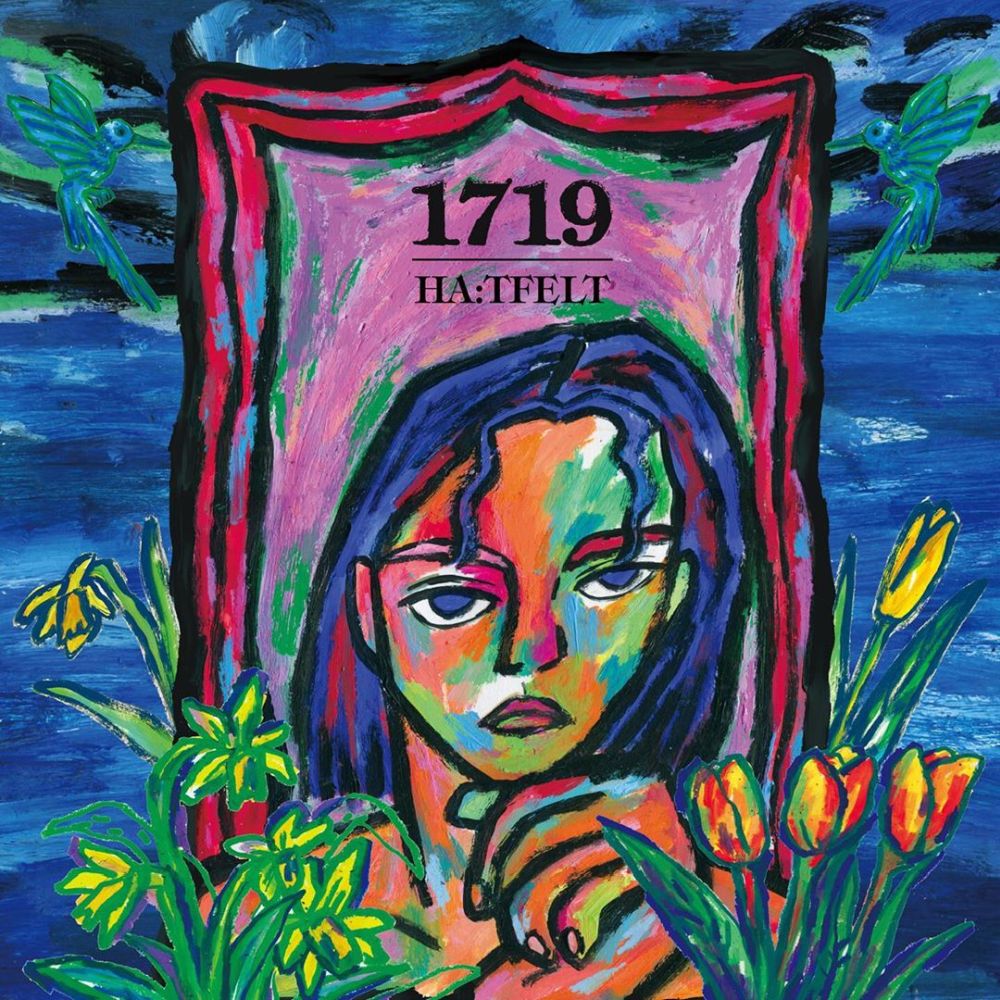
More than the musicality, though, the appeal of 1719 lies in its message. Through 1719, Ha:tfelt brought her listeners on her life journey. Perhaps the most impressionable track is the introductory “Life Sucks”. Right from the get-go, there is no sugar-coating. Ha:tfelt goes straight to one of the biggest obstacles of her life: her father’s widely-publicised embezzlement case. The song unapologetically points out her father’s irresponsibility towards his family and her resentment and anger towards him.
“Cigar” is about loneliness and being in love even as the relationship is falling apart, and how doing so erodes one’s sense of self. There is no closure, no promises of things getting better — because sometimes they don’t. There is a callousness in the way Ha:tfelt sings about herself, and it brings out a vulnerability that we don’t usually see with idols. On the other hand, “Sweet Sensation” has a hopeful tinge as Ha:tfelt sings that “everything is going to be alright”.
1719 was unabashedly an amalgam of hopefulness, anger, loneliness, happiness, resentment, and love. The complexity of existing and feeling that Ha:tfelt brought via 1719 immediately put it at the top few albums of this year for me.
I’m curious to know what made Lo pick 1719 as well!
Lo: 1719 is an interesting case for me, because there are albums from this year that have less wrong with them. It’s a very flawed album, almost all of which stem from the bloat from having three years of singles shoved into one piece of music. There’s the tonal whiplash, far less musical cohesion than Onewe had, and it both runs long and feels it. 1719 needed to be cut down.
And yet. Beyond sequencing issues and length and songs that should not be in proximity, there is Ha:tfelt’s unyielding talent as a composer and performer. The thing about minimalism is that there’s no room for error– if it’s only 98% good, it’s terrible. But she thrives in this danger zone. Her voice is like a siren: completely enthralling. She turns the fragility of her voice into a strength by playing to her vulnerable side. The music is light but always infused with a tinge of sadness and pain. Even in “Life Sucks”, the anger is there to cover the hurt. Then you have tracks like “I Wander” and “Bluebird”, which are pure lilting heartbreak. 1719 is filled to bursting with doubt, loneliness, guilt, self-loathing, with just enough hope and love to keep it on the right side of bittersweet.
1719 is the embodiment of what it means to be human, brought to life in a way I don’t think anyone but Ha:tfelt can accomplish. And while I have problems with the album as a whole, the songs, separated out, are too good to not recognize, or to rank below another album that doesn’t have 1719’s weaknesses, but also lacks its strengths. It will rip your heart out and you will thank Ha:tfelt for the pleasure.
Aastha, I’ve never really bought into Dreamcatcher; for all their rock imagery, I’ve never felt it anything more than window dressing. Tell me about Dystopia: The Tree of Language.
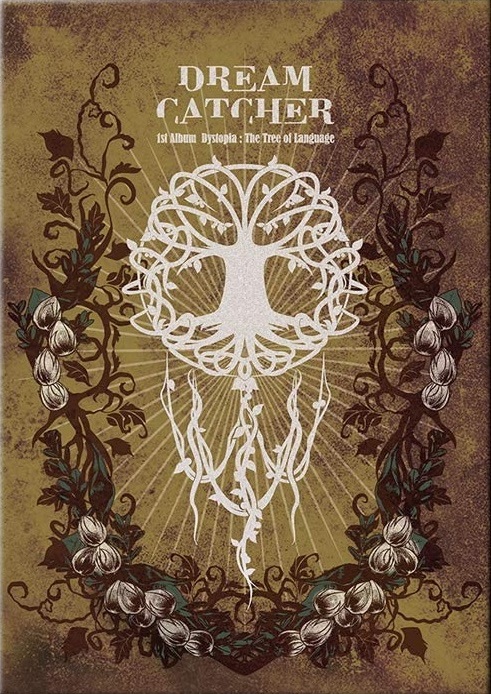
Aastha: Oh, definitely. Dreamcatcher is rock-inspired, for sure, but they’re hardly the epitome of the rock genre as we know it. Regardless of that, I think they’ve found a niche sound that they’ve consistently delivered with quality. On top of that, they’ve also slowly managed to diversify their exploration of genres without letting go of the niche that attracts the majority of their fanbase. I’ve always liked Dreamcatcher for the unique rock-pop sound they bring to the K-sphere of music.
While Dreamcatcher’s past projects have felt too flat and lacking in musical depth, Dystopia stands out by differentiating itself as an album that flaunts different sides of Dreamcatcher. And that’s plenty good for a first album, I say. Producers Leez and Ollounder deserve a shout-out for the composition of this album. While all the songs on Dystopia are largely influenced by rock-elements, there is just enough creativity infused into the production to set each track apart without making any one song feel like it’s outside the overall sound of the album.
Title track “Scream”, for example, combines rock and EDM to create a dance track with an addictive, thumping beat that will get you tapping your feet to the music. “Red Sun”, on the other hand, blends in with newer trends with its trap-laced arrangement. “Black or White” switches between a minimalist instrumentation and one that’s heavier, coupled with vocals that consistently change from singing to rapping and then back to singing. Yet, the instrumentation and vocals are arranged to be a polished, sleek piece, making the track one of the best off the album. Dystopia impressed me and earned a spot on my list exactly because of this: it balances the tricky feat of experimentation and sticking to a group’s niche sound. It draws a listener in with its familiarity, and keeps them hooked with the novelty it brings to each track.
Though, if Dreamcatcher hadn’t released Dystopia, I would have picked NCT’s Neo Zone. For the first time ever, an NCT release had me wanting to listen to more of their music. How did NCT’s album get onto your list, Anna?
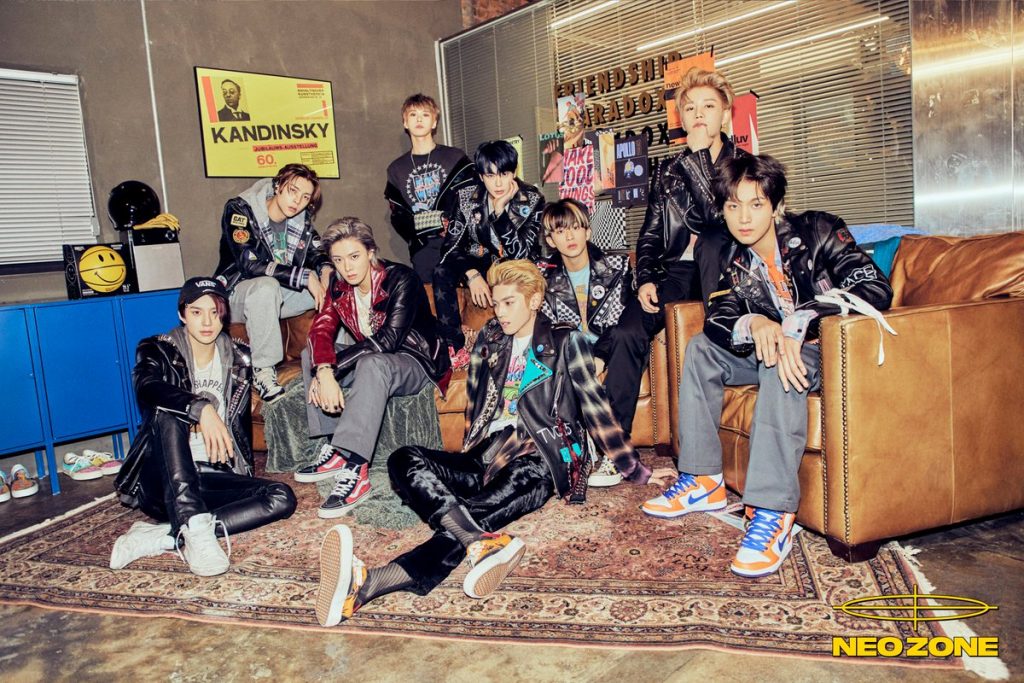
Anna: I’ve never paid much attention to NCT, or their multiple units, but NCT 127’s Neo Zone caught my eye in a great way. Standing at 13 tracks, it is an extremely packed album, but each song showcases a different aspect of the group’s charms. The groovy “Pandora’s Box”, written by Mark and Taeyong, puts their musical identity on full display, while “White Night” allows the group to show off their stunning, emotive vocals. Rather than just being the token ballad of the album, it is dynamic and beautiful, reflecting the powerful image of NCT 127 even if they are primarily known as a dance group.
Enjoyment really is key in this album, and I love how small, subtle details are thrown in to enhance the experience. The elevator ding in “Elevator” as the listener is ushered into the 127th floor at the beginning of the album, as well as the deep “하나 둘 셋 넷” introduction in “Boom” are pleasant surprises, which creates anticipation while simultaneously subverting expectations. With the number of flavours and layers this album contains, it’s hard to put this full album into words, so the best thing to do is to listen to it for yourself.
What about you, Lo? I’ve only heard of Stella Jang’s wonderful “Colors”, but she seems to be an artist with great musicality! What about Stella I made you give it the top spot among the other full albums released so far this year?
Lo: From the first (a capella!) note, Stella I blew me away. Jazzy indie-folk with a downright pop sensibility for hooks when she chooses, all tied with Stella Jang’s husky voice; this album is a whirlwind of genres, of themes, of experiences. It’s really a slice-of-life piece, focusing on the small details of Stella Jang’s life. Her hopes that this time, when she says she loves her man forever, it’ll be true is right after “Bourgeois Emotion”, a track about how her boyfriend helps her forget she’s broke and unemployed. It’s painfully honest, with tracks like “Go Your Way” and “Storing Nights” pulling no punches on the difficulty of the life she leads. Being an independent musician is grueling work, and she makes it sound like it, but she also balances it with tracks such as “Good Job”, where the satisfaction from living according to her own rules is enough to compensate for her material difficulties.
She’s also viciously realistic about how actions have consequences. “Villain” is an excellent song, an energetic jazz tune that sees Stella pointing out that everyone is the hero of their own story, but that doesn’t make them a hero, and embracing her role as the villain, only to be learned in the next song, “Reality Blue” that fleeing your problems won’t fix them, then she loses her boyfriend, and finally spends the rest of the album pleading and groveling only to come up empty, with only her professional accomplishments and dreams to act as a balm. The bare-bones production of piano and guitar allows Stella Jang’s voice to carry the album, and she is both charismatic and expressive enough to do so with ease.
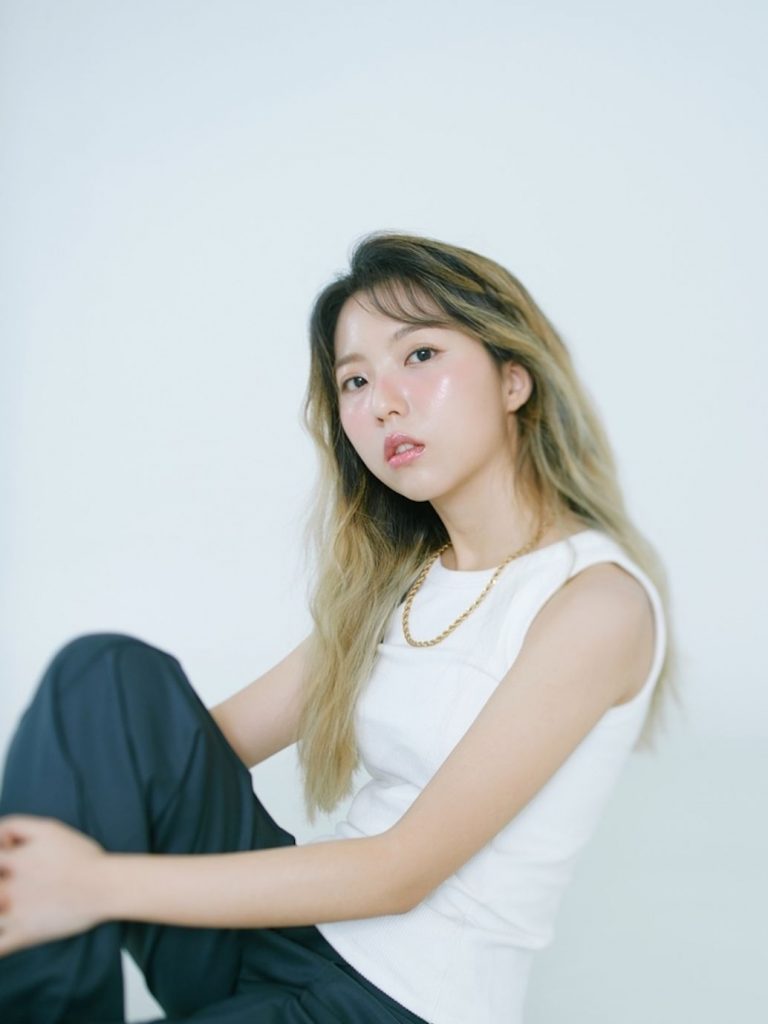
But what really won me over is the sense that the only person Stella Jang wrote Stella I for was Stella Jang. If I happen to enjoy it and think it’s magnificent, that’s cool, but that’s not the point. It gives Stella I freedom to be made in a way where prestige and acclaim were never factors, where the only consideration was if the creator was satisfied with her work. And, ironically, it is once again a case where not trying to be incredible is what allowed Stella I to be so.
Aastha: It seems that we’ve all managed to find some gems of albums amidst the pool of releases so far this year. Be it the vocal display, the production quality, or the novelty factor of an album, there have been some outstanding releases that have impressed us all.
(YouTube: [1] [2] [3]. Images via: RBW Entertainment, YG Entertainment, Happy Face Entertainment, SM Entertainment, Grandline Entertainment)


